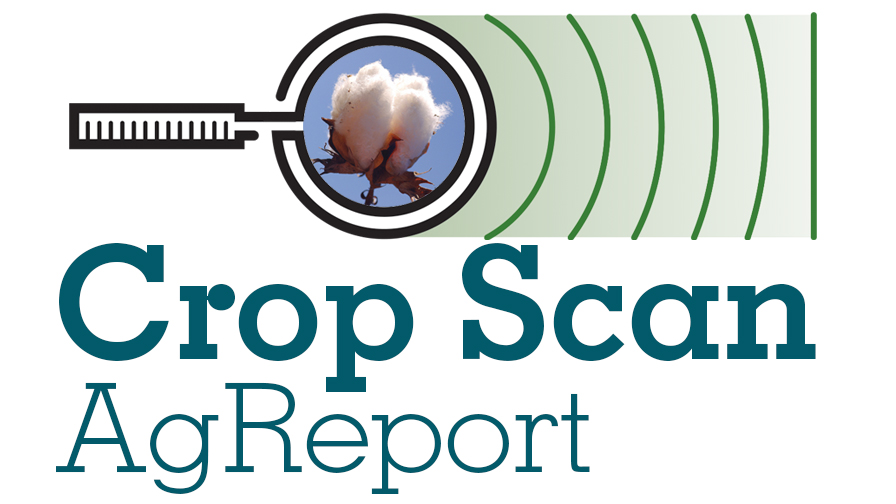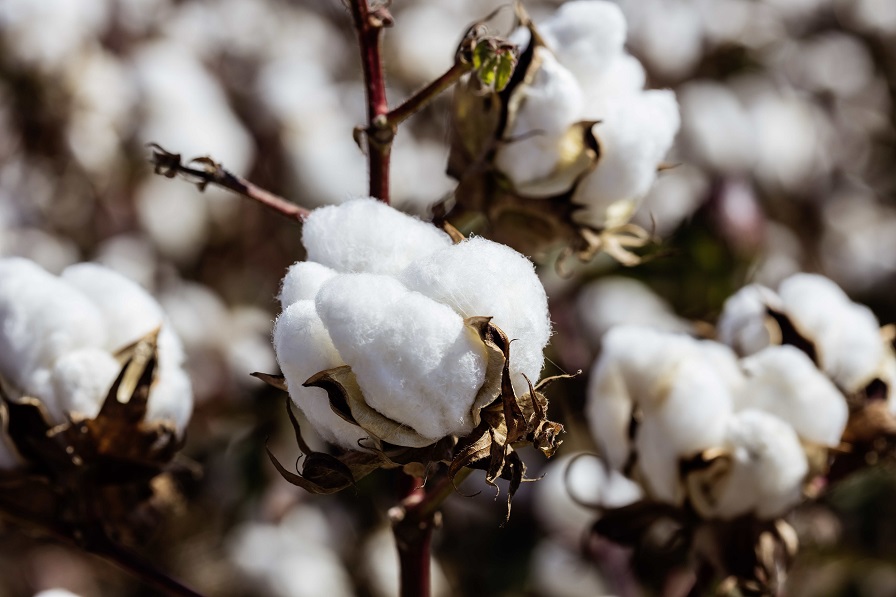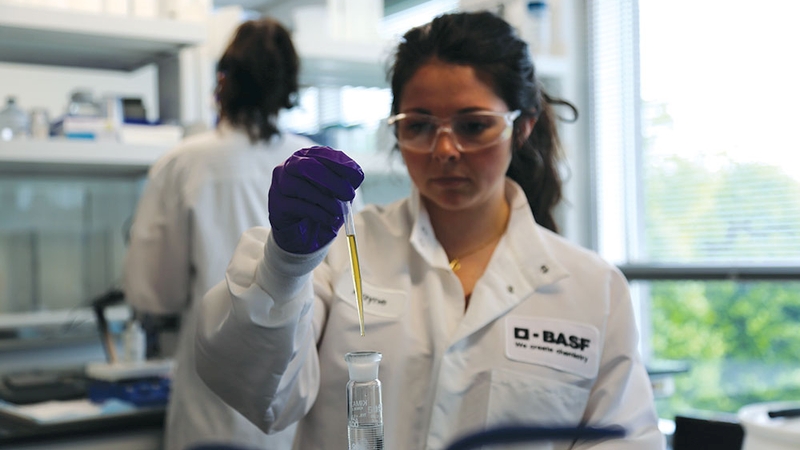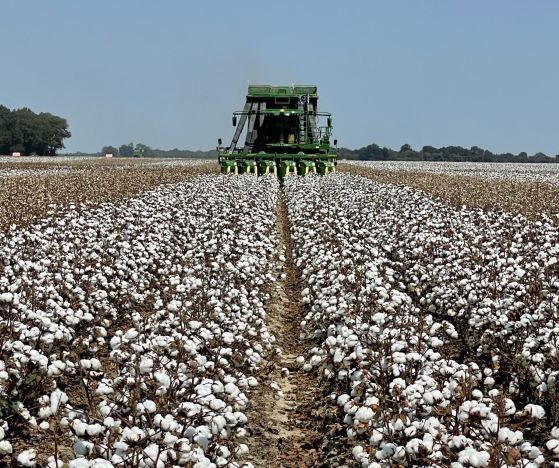Gentlemen, Start Your Engines
The loss of Deltapine DP 555 BG/RR has been on the minds of growers since January of 2008 when it was announced that Monsanto’s original single-gene Bollgard Bt trait would be phased out, taking 555 and all other Bollgard varieties with it.
Now all commercially available Bt varieties will have either Monsanto’s Bollgard II or Dow’s WideStrike twin-stacked traits. WideStrike, exclusive to Dow’s PhytoGen varieties, has slightly different molecules than Bollgard II.
Even though 555 is not commercially available in 2010, there was an exemption that allowed it to be sold this fall for planting in 2010. Distributors were allocated 33% of their 2009 purchases of 555, and growers who chose to buy and pay for their allotment by September 30 were qualified to plant it next spring.
The ripple effect of losing 555 will be felt in Georgia more than anywhere. It has been planted on 80-plus percent of Georgia’s acres since 2007, and it has been a consistent national market-share leader for at least that long.
So now companies are jockeying for position to fill the void with higher-yielding varieties with more advanced traits.
In fact, Deltapine says it will bring to market only those varieties that are as good as, or better than, 555. Deltapine rolled out a total of five new varieties in its Class of ’09 — all with Bollgard II/Roundup Ready Flex.
DP 0935 B2RF is closest in maturity to 555, but with some advantages, says Dr. Dave Albers, Monsanto cotton germplasm lead.
“We think there will be some quality improvements in the 0935,” says Albers. “One of the things I like best about 0935 is its consistent performance in trials. And it’s a nectariless variety. That’s important because we have lygus in the Mid-South and Southeast, and fleahoppers in Texas. They are not as attracted to nectariless varieties.”
Deltapine’s Class of ’10 variety candidates are currently being evaluated. An announcement on which varieties will be released and what their commercial names will be comes in mid-December.
Dow has several of its PhytoGen varieties gaining popularity in Georgia, particularly PHY 375 WRF and PHY 370 WR. PHY 375 is a WideStrike/Roundup Ready Flex variety, while PhytoGen 370 has the original Roundup Ready trait and WideStrike.
Bayer CropScience’s most popular Stoneville variety in Georgia in 2009 was ST 5458 B2RF. It has the Bollgard II and Roundup Ready Flex traits.
Bayer is testing four FiberMax Liberty Link varieties, looking for a fit in the Southeast. LibertyLink allows the use of the non-selective herbicide Ignite over-the-top. Where glyphosate-resistant Palmer amaranth is a problem, alternate chemistry can be a plus.
Glyphosate-resistant Palmer amaranth is a stick of dynamite and the fuse was lit in Georgia.
Sumner, GA, grower Clay Young planted 80% of his 650 acres this spring with 555 and will plant his allocation again in 2010. But he also planted PhytoGen and Stoneville varieties and had a test plot with 17 varieties.
“I’ll put 555 on my dryland next year because I haven’t seen enough tests with the other varieties to be comfortable with them yet,” he says. “On my irrigated acreage, I’ll probably go with PhytoGen 565 and some PhytoGen 375.”
Young has also planted PHY 370 in the past. “I like the 370, but I like the Flex with 375,” he says.
He adds that Stoneville 5458 is “a really good-looking cotton” and 0935 “is a good one, too.”
Young’s yields have gone up the past three years for a couple of reasons. “It’s a combination of better varieties and our weather patterns have been good,” he says.
There’s no data to confirm that Bollgard II and WideStrike show differences in control, but Young’s anecdotal evidence says there might be on his farm.
“We had bad fall armyworms this year and we were glad to have WideStrike,” he explains. “In our Bollgard II and single-gene Bollgard cotton, the armyworm pressure was a lot higher. But we had better control of bollworms with Bollgard II. I can’t tell you why.”
Grover Cobb of Bartow, GA, has lived through the nightmare of glyphosate-resistant Palmer amaranth and decided to plant his entire 439 acres of cotton in 2009 with FiberMax FM 1845LLB2 — a Liberty Link/Bollgard II variety.
“I have to use FiberMax because of the pigweed resistance to glyphosate,” he says. “Resistance was one of the reasons I’ve had to cut back on acreage.”
In 2007, Cobb noticed pigweed was spreading, although he had been having good results with glyphosate. “But in ’08, they were everywhere,” he says. “Ignite can be a little expensive, but I hate a pigweed. The pigweeds have gotten so bad that we had to spray all of our cotton three times and part of it four times.”
Deltapine continues to market the highest number of varieties in Georgia. USDA’s Cotton Varieties Planted report for 2009 shows that 15 of the company’s varieties were sold in the state. Eight were Bollgard II varieties and will be available in 2010, plus any of those selected for the Class of ’10.
Michael York of Pavo, GA, planted three of the Class of ’10 candidates this season in the 2009 New Product Exposure (NPE) program with 555 as the check.
The balance of his 1,400 acres of cotton was planted in 555.
“I think we have something good coming down the line,” York says. “One variety was real close to 555 in yield and the other two yielded 150 to 200 pounds more.”
“Michael’s NPE plots have been commercially ginned,” says Steve Bullard, manager of the BCT Gin Company’s Quitman, GA, plant. “There are three things we’re excited about: yield, turnout and grade. (One) picked 1,592 pounds. It was excellent.”








